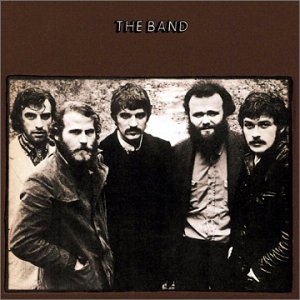Here's my
Prefix review for a new retrospective chronicling the groundbreaking work from Ethio-jazz pioneer
Mulatu Astatke.
"Basically, I think there's no difference between music and science,“ Mulatu Astatke told Tel Aviv’s
Haaretz in 2006. “The musician puts together different sounds in order to create something interesting; the chemist combines different chemicals in order to create something interesting. The success of both is determined by the proportions within the structure that they create. In music it's called counterpoint; in science it has another name. But the principle is exactly the same." It’s this scientific quality that has made the Ethiopian jazz titan’s music so singular and original in its sound. The cross-pollination is almost unfathomable on paper: American jazz and funk, traditional Ethiopian melodies, Latin rhythms, and even a dash of psychedelia all work together in Astatke’s astonishing compositions. This new retrospective, a snapshot of his most creative period, spanning 1965-75, reveals an unheralded master with a firm grasp on a dizzying array of styles and cultures.
Born in western Ethiopia, Astatke’s parents wanted him to pursue a degree in aeronautical engineering, but he fell in love with jazz and instead became the first African student to attend the Berklee College of Music. In the early 1960s, he moved to New York, the melting pot of melting pots and the perfect breeding ground to unite the disparate sounds and techniques that he had accumulated up to that point. He recorded for small labels in both New York and London, but it wasn’t until he returned to Ethiopia in the late 1960s that his career took off. Astatke became one of the leaders of the cultural renaissance that took root in Addis Ababa, Ethiopia’s capital. The “Swingin’ Addis” scene allowed him to experiment further, but his creativity was squashed when the communist regime took power in the mid-1970s. Astatke fell into obscurity until 2005, when director Jim Jarmusch included his music on the soundtrack to Broken Flowers. He is now recording his psychedelic jazz once again, this time with the Heliocentrics as his backing band.
Astatke’s output featured here is the perfect material for soundtracks: It’s cinematic and enigmatic, full of smoky corners and plenty of atmosphere. Most of these “Ethio-jazz” compositions are single-chord explorations, showcasing his ethereal vibraphone playing. The minor-key psych-funk of “Mulatu” allows Astatke to truly stretch out as feverish sax solos float in and out, creating a moody masterpiece that constantly shape-shifts despite being built around just one note. He replaces traditional Ethiopian instruments with Western guitars, drums, Rhodes piano, and horns, and it’s excitingly disorienting: A sinewy African melody (provided by entwining horns) leads the dancing “Yekermo Sew” over a dark, soulful jazz beat; just when you get your bearings, a fuzzy electric guitar solo blasts off with an Ethiopian melody that wouldn’t sound out of place on a 45 from late-'60s San Francisco.
Elsewhere, Astatke incorporates Latin motifs into his Ethio-jazz (“I Faram Gami I Faram,” “Asiyo Belema,” “Girl From Addis Ababa,” “Shagu”), creating bizarre continent-spanning hybrids that feature both singing in Spanish and Amharic (often within the same song). These were recorded with the Ethiopian Quintet in the mid-1960s, but don’t let the band’s name fool you: The Quintet was made up of Puerto Rican jazz players who learned how to play Astatke’s Ethiopian style on the fly. After returning to Addis Ababa in 1969, he became a sought-after arranger for Ethiopia’s premier singers, many of which are featured here. “Lantchi Biye” is the best of the bunch, with teen heartthrob Tilahoun Gessesse wrapping his warbling voice around a dynamic, minimal shuffle. Astatke is at his best on the one-two punch of “Emnete” and “Yegelle Tezeta,” two sides of the same coin. The former is a fiery slice of dark funk, with horns and saxophones coming in from all directions, all in wild competition for your attention; the latter takes the same wicked backbeat and strips it to a core of bass, spiky guitar, and electric piano.
As referenced in that leadoff quote, Mulatu Astatke is something of a mad scientist, combining seemingly opposed genres to create unthinkable concoctions. Yet his unparalleled genius and clarity of vision reveals more similarities than differences in these sounds, and by extension these cultures. By highlighting the rhythmic underpinnings, we can see that the Latin, funk, jazz, and Ethiopian traditions are all cut from the same human-made cloth. So maybe he’s more of a musical ambassador than a mad scientist. Astatke’s compositions aren’t meant to be played out in a sealed, controlled laboratory; they’re meant to be heard and enjoyed by people all over the world. And with his sense of global exploration, fully evident in this astounding document, Astatke wouldn’t have it any other way.
Download:Mulatu Astatke--Yekermo SewMulatu Astatke--Mulatu










